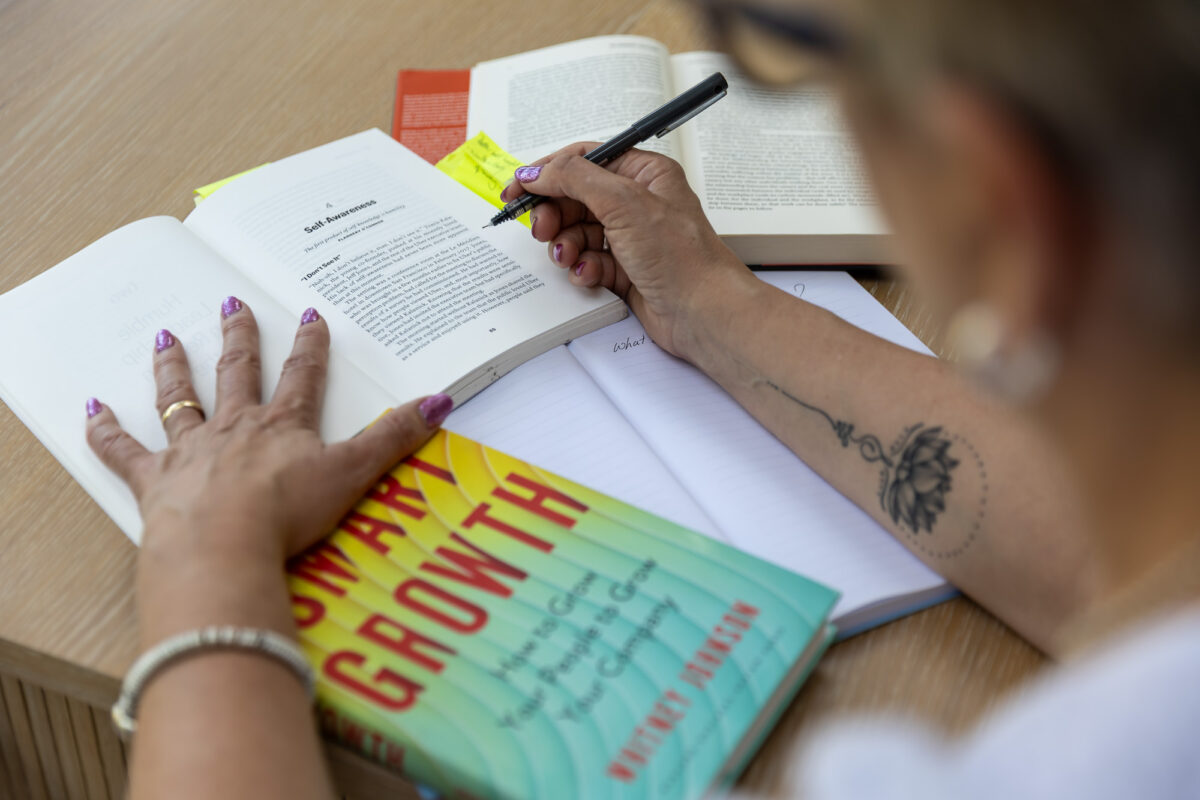Self-awareness has become a management buzz word and is increasingly being identified as key to success in our careers, leadership, business and life.
I know from my own experience that this critical skill is rarely touched on in education or early in our careers.
It is therefore no surprise that a recent study estimated that only 10-15% of people are truly self-aware. It isn’t something we are born with or just know.
Yet self-management has been identified by the World Economic Forum as an essential skill for the future.
What is Self-Awareness?
According to organisation psychologist Tasha Eurich, Ph.D self-awareness is how clearly you see and understand your values, strengths & weaknesses, and emotions, and the impact that you have on those around you.
Daniel Goleman, Ph.D. also defines self-awareness as the ability to read and understand your emotions as well as recognize their impact on others, in his work on emotional intelligence
This is not only about understanding your uniqueness but also owning, and believing in what you bring to the table, knowing what enables you to flourish and what doesn’t!
Over your lifetime you will have spent weeks, months and years studying various subjects, but how many years have you spent learning about yourself?
What you know matters but who you are matters more
The thought of taking the time and energy to start to think about yourself may feel self-indulgent, unproductive, or uncomfortable. But I know from working with clients that improving their self-awareness, understanding, and owning their uniqueness is life changing.
5 Benefits of Self-awareness
When we see ourselves clearly as a unique individual, it has a range of benefits including:
- Personal Growth – knowing where you want to be in your career and your life, understanding where you can grow and flourish.
- Confidence – the ability to talk about your strengths, owning your uniqueness and what you bring to the table.
- Decision Making – taking informed, conscious decisions with more clarity and understanding. Being able to set boundaries and keep your focus.
- Stronger relationships – when you deepen your self-awareness you better understand why others think, feel, and act the way they do, increasing empathy and compassion.
- Self-regulation / Self-control – being able to pause and respond to situations and not have knee jerk emotional reactions. Self-awareness enables you to approach situations from a more internally balanced perspective.
Overall, increasing your self-awareness enables you to spend more time being your “Best Self “, rather than getting caught up in your own negative bias.
"It is not the skills we actually have that determine how we feel but the ones we think we have."
Mihaly Csikszentmihalyi
Developing Self-Awareness
Firstly, self-awareness isn’t a one stop, tick box exercise, it is an ongoing process of curiosity and self-discovery. Here are a few ways to start….
- Set aside time. Taking time to consciously think and focus on you on a regular basis may seem simple but starting and creating a habit is often the biggest hurdle.
- Journaling. Writing your thoughts onto paper enables you to gain more clarity about your perceptions and deepen your understanding of yourself. This is what neuroscience describes as encoding and is especially helpful in labelling your emotions and being specific about how you are really feeling.
- “What” instead of “why” questions. “Why” questions can prompt internal judgement and negativity. “What” questions, however, provide deeper understanding, insight and meaning. For example, “what situations at work make me feel frustrated?” will lead to more insight and forward-looking thoughts than “why am I so frustrated?”
- Mindfulness. You may be rolling your eyes, but research shows that it improves the ability to purposefully direct attention and behaviour, and suppress inappropriate knee-jerk responses! Simple breathing exercises are a great start for grounding yourself in the present moment, rather than your mind rehashing the past or imagining the future.
- Asking for feedback. Being open to how you are viewed and perceived is an important practice, but not always a comfortable one to start. It is therefore vital to identify a trusted source with your best interests at heart, who will listen and responded with care.
- Additional resources. I have a free Values Workbook that enables you to identify your work values and provides insights into their impact on your career. I would also recommend reading Emotional Agility by Dr Susan David and the free Via strengths profile.
"Self-Awareness is the foundation to a happier more fulfilling life, and a successful career"
Tina Neve


